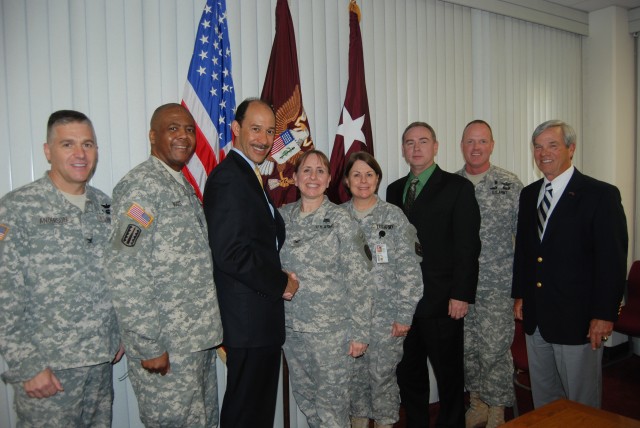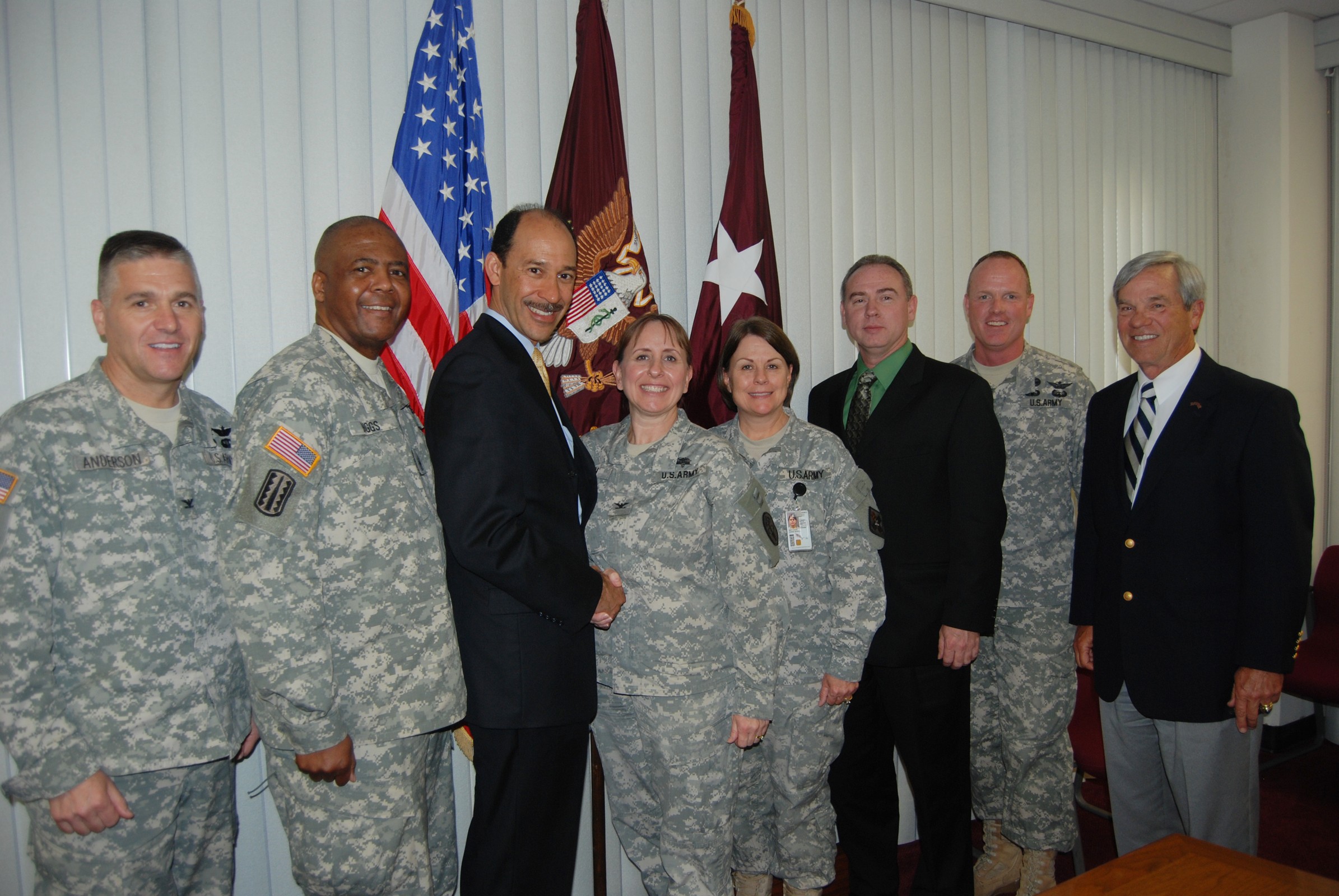
FORT SAM HOUSTON, Texas -- Michael Corbin, deputy assistant Secretary of State, Bureau of Near Eastern Affairs for Iraq issues, visited students attending medical training at the Army Medical Department Center & School and the new instructional facilities at the Medical Education and Training Campus and also talked to wounded warriors at the Center for the Intrepid and the Warrior and Family Support Center Feb. 25.
The state department official hosted a briefing for students and faculty at Blesse Auditorium to talk about U.S. policies in Iraq and what to expect as the drawdown of military forces nears.
Corbin, with 25 years experience in the region, previously served as the Minister-Counselor for Political and Military Affairs at the U.S. Embassy in Baghdad. He has also served in Syria, Egypt, Tunisia and Kuwait, as well as director of the counter-narcotics section of the U.S. Embassy in Caracas, Venezuela.
His current responsibility is to assist in transitioning Iraq to a civilian operation, which begins next year when the security agreement ends and most U.S. forces are scheduled to return from Iraq.
"The incredible contributions of the military in all the different areas in Iraq will be used to build a partnership with the Iraqi people," Corbin noted. "The State Department will not replicate everything the military is doing, but build a partnership with the Iraqis that will preserve the gains made thanks to the sacrifices of the armed forces of the United States."
Corbin made particular note of the sacrifices of military families during deployments and the dedication of Soldiers killed and wounded in Iraq.
"We have an enormous responsibility and an enormous task," he said.
Key to the transition will be a significant State Depart-ment presence in Iraq.
The central embassy in Baghdad, the largest in the world, will serve as a diplomatic platform to expand operations with other US civilian agencies. There will also be a consulate in the northern Kurdish area. Another consulate in Basara will coordinate oil field services managed by commercial companies.
Additionally, the State Department will operate branch consulate offices in Mosul and Kirkuk. The embassy and the consulates will work with other supporting US government departments such as Treasury, Commerce, Agriculture and USAID.
"The State Department will establish an office of security cooperation to continue the partnership with Iraqi security forces fostered by the U.S. military," Corbin said.
The secretary noted the importance of continuing current military support programs and constant interaction with Iraqi military to sustain a professional force that has a moderating and positive presence in the country and that respects human rights. A third program will focus on police development.
"The current national police force has a lot of respect within the population as a result of training with military forces," he said.
"The goal will be to have a professional police force that concentrates on community policing, criminal investigations, dealing with corruption, going after organized crime and getting cases to the courts."
Corbin said U.S. military efforts have paid off.
"There are many positives, such as a peaceful transition of power; free and fair national elections of parliament that is inclusive government including Sunni, Shia and Kurds; Iraqi self-development of oil fields and revenue targeted to rebuilding infrastructure; as well as returning refugees, such as doctors, engineers and other technical professions," Corbin said.
"We see an Iraq that is working with its neighbors, Jordan, Syria, and Turkey in a positive way," Corbin said. "This all contributes to Iraq as an example for the region and a source of moderate policies in area."

Social Sharing